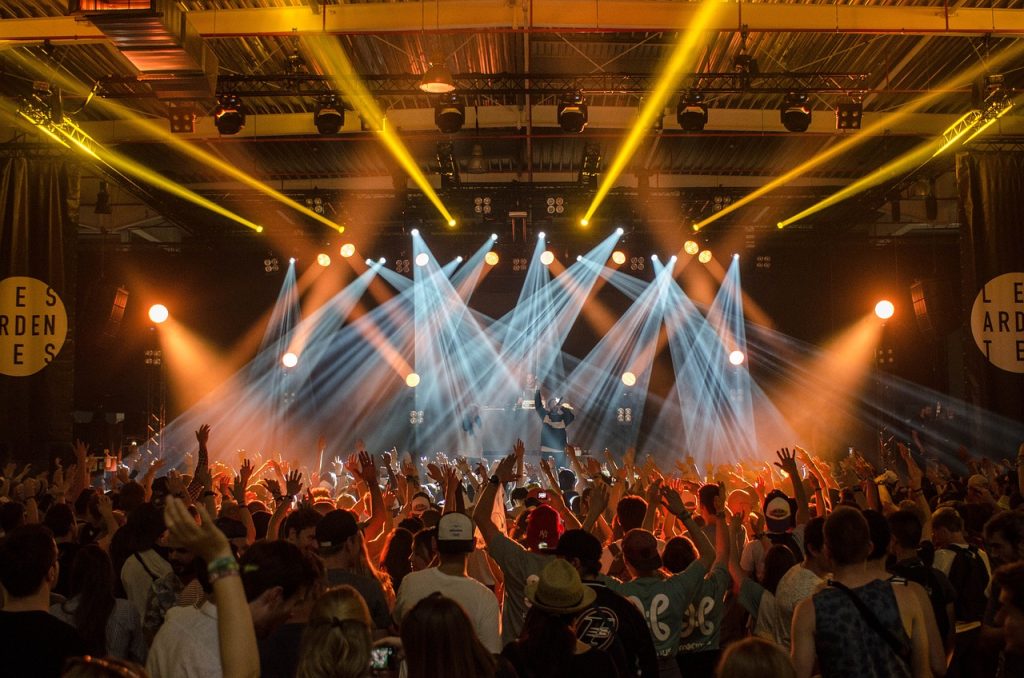Music festivals are dynamic events that bring together artists and audiences to celebrate a wide range of musical genres and cultural experiences. From large-scale international events to intimate local gatherings, music festivals offer unique opportunities for live performances, community engagement, and artistic expression. This article explores the significance of music festivals, their impact on the music industry, and highlights some of the most notable festivals around the world.

The Significance of Music Festivals
- Celebration of Diversity:
- Variety of Genres: Music festivals often feature a diverse lineup of artists spanning multiple genres, from rock and pop to electronic and world music. This diversity allows attendees to experience a wide range of musical styles and discover new artists.
- Cultural Exchange: Many festivals celebrate specific cultures or musical traditions, providing a platform for cultural exchange and appreciation. This fosters a greater understanding of different cultures and their musical contributions.
- Community and Social Interaction:
- Shared Experience: Festivals create a sense of community among attendees, who come together to enjoy music and connect with like-minded individuals. The shared experience of live performances fosters social bonds and a sense of belonging.
- Networking Opportunities: Music festivals provide networking opportunities for artists, industry professionals, and fans, facilitating collaborations and career development.
- Economic Impact:
- Local Economy Boost: Music festivals can significantly boost local economies by attracting tourists, generating revenue for local businesses, and creating temporary jobs. The influx of visitors can have a positive impact on hotels, restaurants, and other services.
- Industry Revenue: Festivals contribute to the overall revenue of the music industry, with ticket sales, sponsorships, and merchandise generating substantial income.
- Artistic Expression and Innovation:
- Platform for Emerging Artists: Festivals often feature emerging artists alongside established acts, providing a platform for new talent to gain exposure and build their careers.
- Creative Performances: The live setting of a festival allows for creative and often unique performances that may not be replicated in other venues. Artists may experiment with new material or collaborate with other musicians.
- Fan Engagement and Experience:
- Immersive Environment: Festivals offer an immersive environment where fans can fully engage with their favorite artists and enjoy a range of activities beyond music, such as art installations, food vendors, and interactive experiences.
- Memorable Moments: The energy and excitement of live performances create memorable experiences for attendees, contributing to the festival’s appeal and repeat attendance.

Notable Music Festivals Around the World
- Glastonbury Festival (UK):
- Overview: One of the largest and most famous music festivals in the world, Glastonbury takes place annually in Somerset, England. It features a diverse lineup of music genres, along with arts, theater, and dance.
- Impact: Glastonbury is known for its cultural significance and large-scale productions, drawing hundreds of thousands of attendees each year.
- Coachella (USA):
- Overview: Held in Indio, California, Coachella is a major music and arts festival known for its diverse lineup of artists and high-profile performances. It attracts a global audience and has become a cultural phenomenon.
- Impact: Coachella is influential in setting trends in music, fashion, and festival culture, and it has become a major destination for music lovers.
- Tomorrowland (Belgium):
- Overview: Tomorrowland is a renowned electronic dance music (EDM) festival held in Boom, Belgium. It is known for its elaborate stage designs, immersive themes, and world-class DJ performances.
- Impact: Tomorrowland is a major event in the EDM community and has expanded to include international editions, such as TomorrowWorld in the USA and Tomorrowland Brasil.
- Lollapalooza (USA/International):
- Overview: Originally founded as a touring festival in the USA, Lollapalooza now has international editions in cities such as Berlin, São Paulo, and Stockholm. It features a mix of rock, hip-hop, electronic, and alternative music.
- Impact: Lollapalooza has played a significant role in promoting alternative and emerging music genres and has become a major festival brand.
- Montreux Jazz Festival (Switzerland):
- Overview: Held annually in Montreux, Switzerland, this festival is renowned for its focus on jazz music, although it also features a variety of other genres. It attracts legendary musicians and offers an intimate setting by Lake Geneva.
- Impact: The Montreux Jazz Festival is known for its high-quality performances and historical significance in the jazz genre.
- Burning Man (USA):
- Overview: Taking place in the Black Rock Desert of Nevada, Burning Man is a unique festival that combines music, art, and self-expression. It is known for its temporary city, creative installations, and participatory culture.
- Impact: Burning Man is influential in promoting creativity, community, and self-expression, and it has inspired similar events around the world.
- Fuji Rock Festival (Japan):
- Overview: Held at the Naeba Ski Resort in Niigata Prefecture, Fuji Rock Festival is Japan’s largest music festival. It features a diverse lineup of international and Japanese artists, along with a focus on environmental sustainability.
- Impact: Fuji Rock Festival has become a major cultural event in Japan and is recognized for its commitment to environmental and social causes.
Challenges and Considerations
- Logistics and Planning:
- Organization: Planning and executing a successful music festival involves extensive logistics, including artist bookings, stage setups, security, and crowd management.
- Weather and Safety: Festivals must prepare for weather conditions and ensure the safety of attendees, which can involve contingency plans and risk management strategies.
- Environmental Impact:
- Sustainability: Festivals can have significant environmental impacts, including waste generation and resource consumption. Many festivals are increasingly adopting sustainable practices to minimize their ecological footprint.
- Green Initiatives: Efforts to reduce waste, promote recycling, and use renewable energy are becoming more common in the festival industry.
- Economic Factors:
- Costs and Revenue: Organizing a festival involves substantial costs, and financial success depends on ticket sales, sponsorships, and merchandise. Economic fluctuations can impact the profitability of festivals.
- Economic Disparities: Some festivals may face challenges related to accessibility and affordability, affecting the ability of diverse audiences to attend.

Conclusion
Music festivals are a vibrant and integral part of the global music scene, celebrating diversity, creativity, and community. They offer unique experiences for both artists and fans, fostering cultural exchange and innovation. Despite challenges, the continued evolution of music festivals reflects their enduring appeal and impact on the music industry. As festivals adapt to changing trends and priorities, they will remain a cornerstone of live music and cultural celebration.


